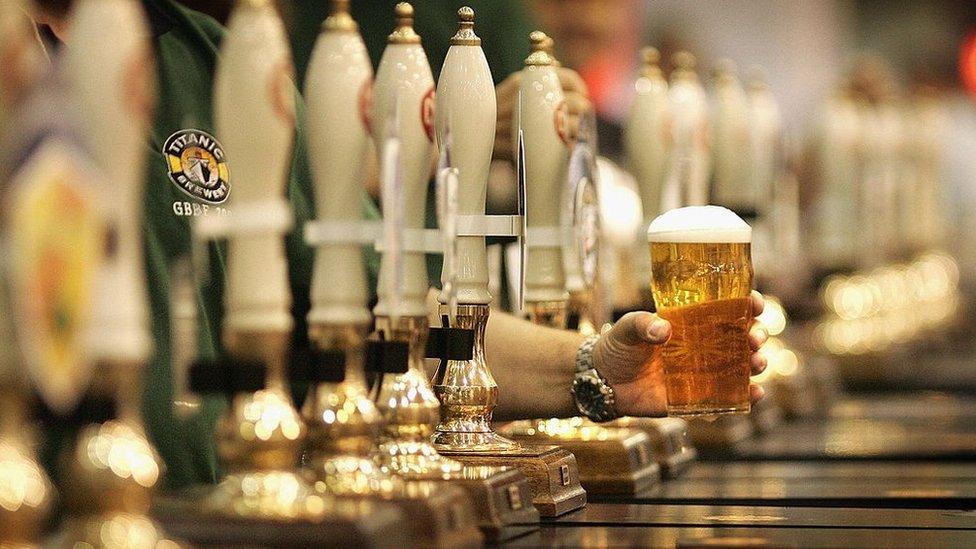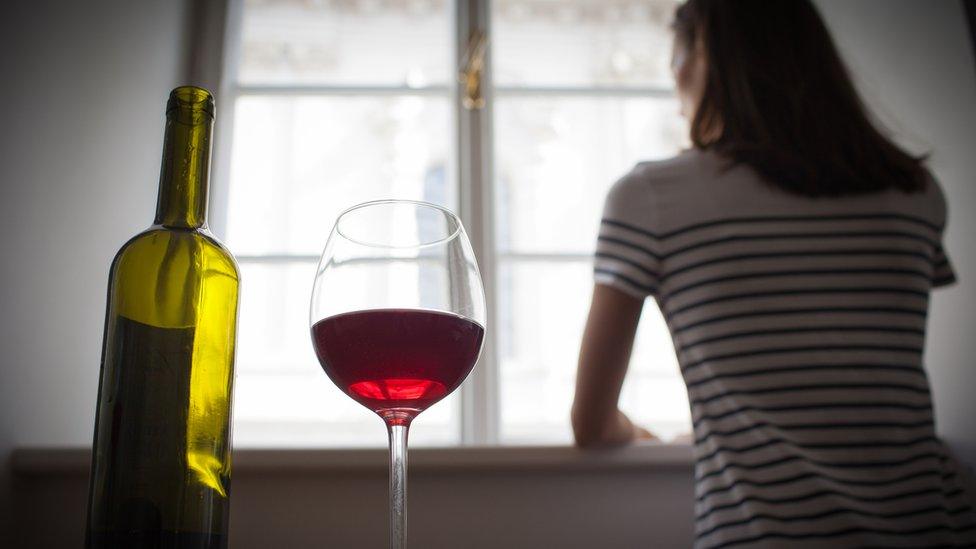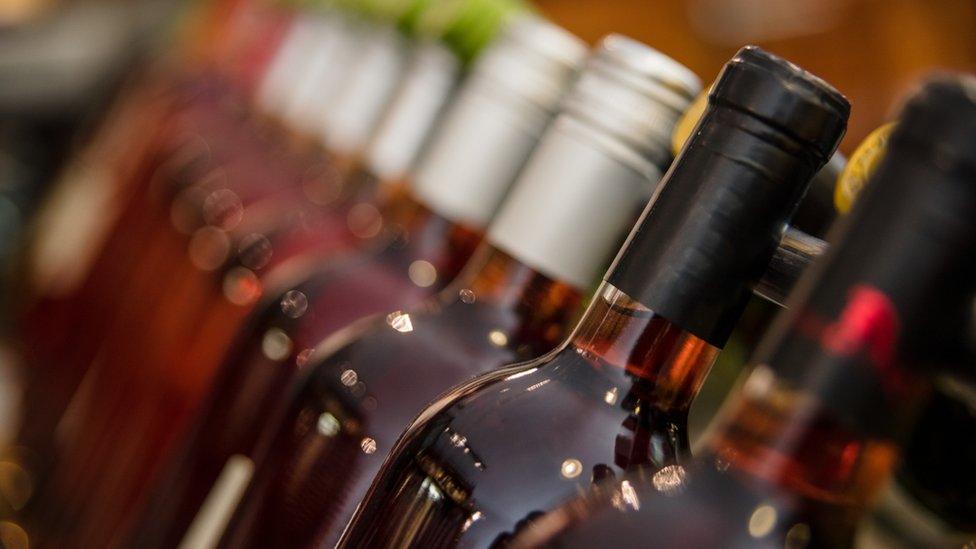Make supermarket booze more expensive, says think tank
- Published
- comments

Alcohol sold in supermarkets should be taxed at a higher rate than drink sold in pubs, a think tank has suggested.
A "pub relief" would make drinking at home less affordable and support the pub sector, according to the Social Market Foundation (SMF).
The Institute of Alcohol Studies (IAS), which commissioned the research, said it would help to cut problem drinking.
Taxing cider and wine by the unit in England would also have public health benefits, the IAS said.
The idea would be to shift taxation towards high-strength drinks bought for consumption at home - and away from weaker products bought in pubs and bars, the SMF said.
That could mean that beer in pubs would become less expensive, depending on how the duties were structured.
Taxing cider and wine by the unit, as is already the case with beer and spirits, would also help cut down problem drinking, it added.
Landlord pressures
According to recent research, cheap supermarket alcohol was the "number one" concern for publicans, said IAS senior policy analyst Aveek Bhattacharya, followed by competition from big chains.
"Wetherspoon's comes in, and that's a killer," he said, adding: "Business rates are a big pressure."
The number of pubs in the UK has declined by nearly a quarter since 2008 as small pubs disappear and big chains consolidate their businesses, according to the latest official figures, external.

'Tougher and tougher'

Colin 'CJ' Lewis says higher taxes for supermarket alcohol is a great idea in theory, but might not work out in practice.
"I've been in the game 20 years, and it's got tougher and tougher," says "CJ" Lewis, the manager of the independent King and Queen pub in London's Fitzrovia district.
"And to be honest, the supermarkets are a little bit to blame," he says.
He says that alcohol available in supermarkets "is, in theory, too cheap".
"The price of alcohol here [in the pub] compared with the price in a supermarket is a bit ridiculous."
However, he adds: "I can't complain, because I buy it myself."
He says the idea of higher taxes for alcohol in supermarkets is "great" for the pub industry in theory, but he's not sure how it would work out in practice.
Supermarkets may still find a way to cut prices, he says.
And any tax relief on beer sold in brewery-owned pubs might be clawed back from landlords by the breweries, he adds. The breweries could charge those landlords more for their beer, and it would stay the same price in the pub for customers, he says.

Mr Bhattacharya said alcohol in supermarkets is cheap for a number of reasons.
Alcohol duty has been cut in real terms every year since 2013, and beer duty in real terms is 18% lower than then.
One of the main reasons supermarket booze is cheaper than pubs is bargaining power, he says.
Supermarkets can squeeze brewers on price because they are such large customers, but when it comes to landlords negotiating with brewers, "the boot's on the other foot", he said.
Supermarkets can also use alcohol as a loss leader - that is, it's sold at a loss to attract shoppers into stores, where they will buy more profitable items.
Duty of care
Katherine Severi, IAS chief executive, said: "Alcohol has become a lot more affordable, and cheaper too, by comparison with other goods... For too long, alcohol duty has been politicised."
Landlords have a duty of care to people in their pubs, she said, adding that a change in the tax regime would "reduce societal harms".
Brigid Simmonds, chief executive of the British Beer and Pub Association (BBPA), which represents brewers, said: "The focus should be on reducing the overall beer duty rate, which is one of the highest in the EU and places an enormous burden on pubs.
"It is also important that the report recognises that the excise duty regime should encourage the consumption of lower-strength products."
A Treasury statement said: "We are committed to supporting our pub industry and responsible drinkers, while tackling the sources of harmful drinking.
"That's why we've consistently cut or frozen alcohol duties, saving drinkers £5.2bn, and introduced a new higher rate of tax for harmful high-strength ciders."
- Published31 July 2019

- Published4 July 2019

- Published19 June 2019

- Published10 June 2019
